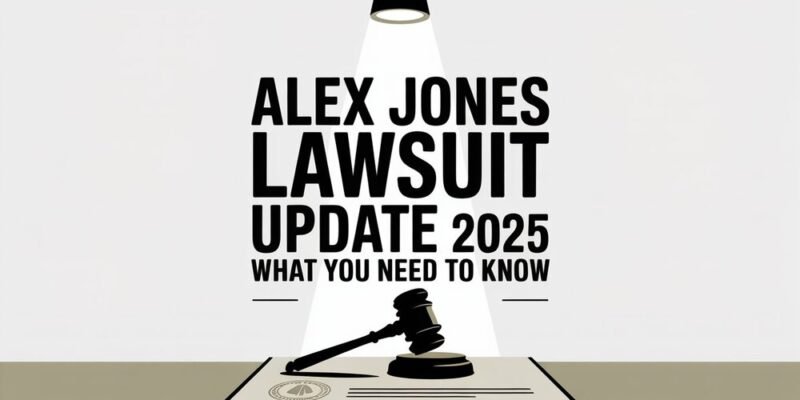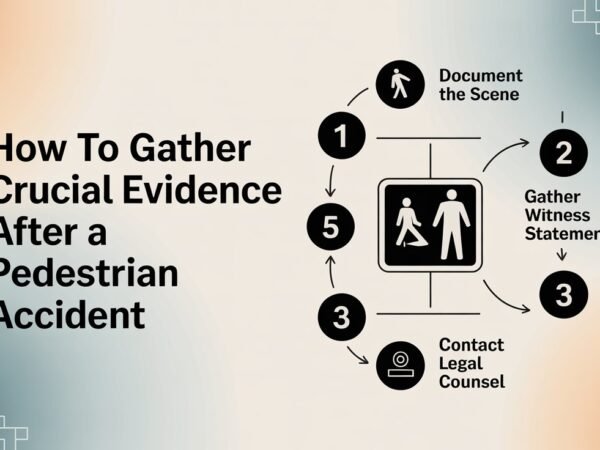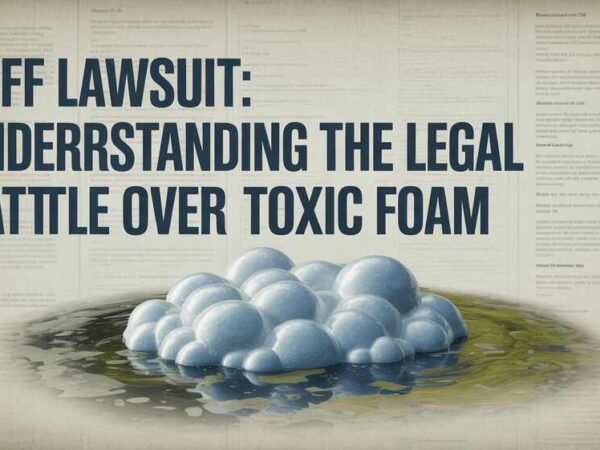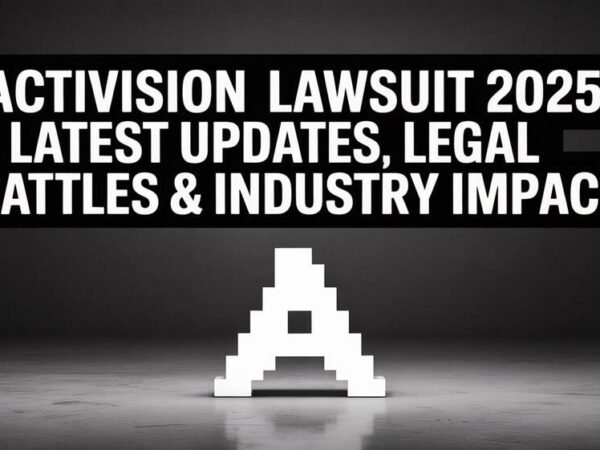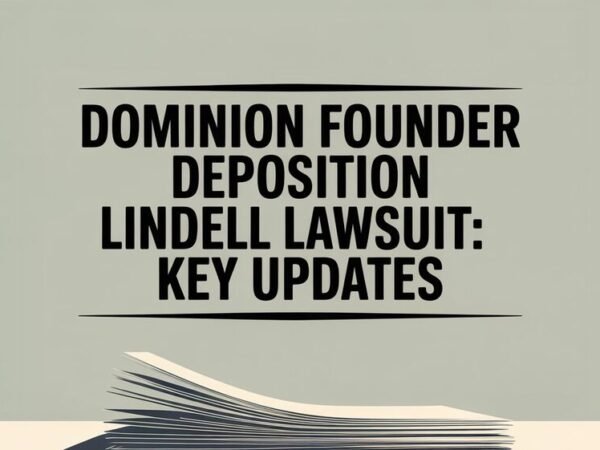Introduction
The “Alex Jones lawsuit” continues to capture headlines in 2025, representing one of the most high-profile defamation cases in American history. Alex Jones, a controversial media personality and founder of the far-right conspiracy outlet Infowars, has been embroiled in legal battles since he falsely claimed that the 2012 Sandy Hook Elementary School shooting was a hoax. These claims, broadcast to millions of viewers, triggered harassment against grieving families and led to a wave of public outrage. Years later, the legal consequences of those falsehoods have materialized into staggering financial judgments and landmark legal rulings. In an age increasingly defined by disinformation and online radicalization, this lawsuit is more than a courtroom drama—it’s a defining moment for free speech, accountability, and justice.
Timeline of the Alex Jones Legal Battles
The legal saga surrounding the “Alex Jones lawsuit” began in earnest when the families of Sandy Hook victims filed defamation suits against Jones in both Texas and Connecticut courts. The timeline stretches back to 2018 when initial complaints were filed. Over the years, Jones consistently failed to comply with court procedures, resulting in default judgments against him. In 2022, a Texas jury awarded nearly $50 million in damages to the parents of one victim. Shortly after, a Connecticut jury ordered Jones to pay a historic $965 million in compensatory damages to several Sandy Hook families. An additional $473 million in punitive damages was later tacked on. The total judgment, approaching $1.5 billion, is one of the largest in U.S. history. This timeline of legal losses has not only devastated Jones’ finances but also shifted the legal landscape for similar cases.
Connecticut Supreme Court Ruling – April 2025
In April 2025, the Connecticut Supreme Court delivered a significant blow to Jones’ legal strategy by rejecting his appeal. The court upheld the lower court’s findings that Jones’ repeated misconduct during the discovery process justified default judgments. Jones had argued that the damages were excessive and that the First Amendment protected his statements. However, the justices disagreed, emphasizing the difference between protected speech and deliberate defamation. This ruling effectively closed one of the last doors for Jones at the state level. With the appeal denied, attention has turned to whether Jones will seek relief from the U.S. Supreme Court—a path fraught with challenges and slim chances of success.
Bankruptcy to Liquidation: What Happened to Jones’ Assets
Following the massive financial judgments, Jones filed for personal bankruptcy in December 2022, claiming limited assets and vast liabilities. His media company, Free Speech Systems, also filed for bankruptcy protection. Initially filed under Chapter 11, the cases were meant to reorganize his debts while keeping his business operational. However, in June 2024, the bankruptcy was converted to Chapter 7 liquidation after Jones failed to propose a viable repayment plan. A court-appointed trustee was tasked with identifying and liquidating Jones’ assets to satisfy the judgments. This included Infowars studio equipment, intellectual property, and potentially real estate. Despite his claims of financial ruin, investigators have uncovered various attempts by Jones to shield assets, further complicating the liquidation process.
Infowars Auction Drama: Who Tried to Buy and Why It Failed
In a bizarre twist, the Infowars brand and associated digital assets were put up for auction in late 2024. One of the most notable bidders was G/O Media, the parent company of The Onion, which placed a symbolic $1 bid. The auction drew intense public and media scrutiny, with critics questioning whether satirical or politically motivated buyers should be allowed to take over such a controversial platform. Ultimately, Judge Christopher Lopez rejected the auction results in January 2025, citing procedural flaws and concerns about bidder eligibility. Another buyer with alleged ties to Jones attempted to offer $7 million to reacquire Infowars, but this bid also faced legal challenges and was rejected. The court’s refusal to finalize a sale has left the fate of Infowars in limbo while creditors and victims’ families push for transparent asset recovery.
Victims’ Families Shift Focus to State Court Collections
With the bankruptcy process faltering, Sandy Hook families have shifted their focus to collecting damages through state courts. Legal experts say this move could yield better results, especially as Jones’ bankruptcy filings have failed to produce meaningful compensation. Attorneys representing the families are now pursuing state-level enforcement actions, including wage garnishment, property liens, and the seizure of business assets. Despite Jones’ claims of near poverty, financial disclosures suggest that he still possesses considerable wealth, often held in shell companies or under the names of family members. These aggressive legal tactics reflect the families’ commitment to ensuring that justice is not just symbolic but also materially enforced.
Public Reaction and Media Coverage
The public response to the “Alex Jones lawsuit” has been both intense and polarized. For many, the case is a triumph of truth over toxic disinformation. Advocacy groups and legal analysts have praised the judgments as a deterrent to future defamation by public figures. On the other hand, some free speech advocates worry about the precedent it sets, particularly when controversial speech—however harmful—is involved. Media coverage in 2025 remains focused on the fallout from the case, especially the implications for digital media platforms and content creators. News outlets continue to track every twist and turn, with podcasts, documentaries, and editorials delving into the broader cultural significance of the lawsuit.
What’s Next for Alex Jones in 2025 and Beyond
As of mid-2025, Alex Jones remains a controversial figure, though his influence has waned considerably. While Infowars still operates at a diminished capacity, its future is uncertain. Jones has hinted at launching new media ventures, possibly utilizing alternative funding streams, such as cryptocurrency and crowdfunding. Legally, his options are narrowing. Any potential appeal to the U.S. Supreme Court would face immense legal hurdles, especially after the Connecticut Supreme Court’s definitive ruling. The long-term financial repercussions are also profound. With nearly $1.5 billion in court-ordered debt and a reputation in tatters, Jones’ ability to rebuild his brand is in serious doubt. Analysts believe that even if he escapes further jail time or fines, the financial noose will remain tight for years to come.
Conclusion: Legal Accountability in the Age of Misinformation
The “Alex Jones lawsuit” is more than just a courtroom drama; it’s a pivotal moment in America’s reckoning with disinformation, media ethics, and accountability. As the courts continue to uphold massive penalties against Jones, a clear message is being sent: deliberate lies that cause real-world harm have legal consequences. This case serves as a cautionary tale for public figures who exploit tragedy for profit and influence. More importantly, it marks a shift in how American society balances free expression with the rights of individuals to be free from defamation and harassment. As we move further into the digital age, the legal and cultural reverberations of this lawsuit will likely shape public discourse for years to come.
Do Read: How Property Division Is Handled in Contested Divorces


